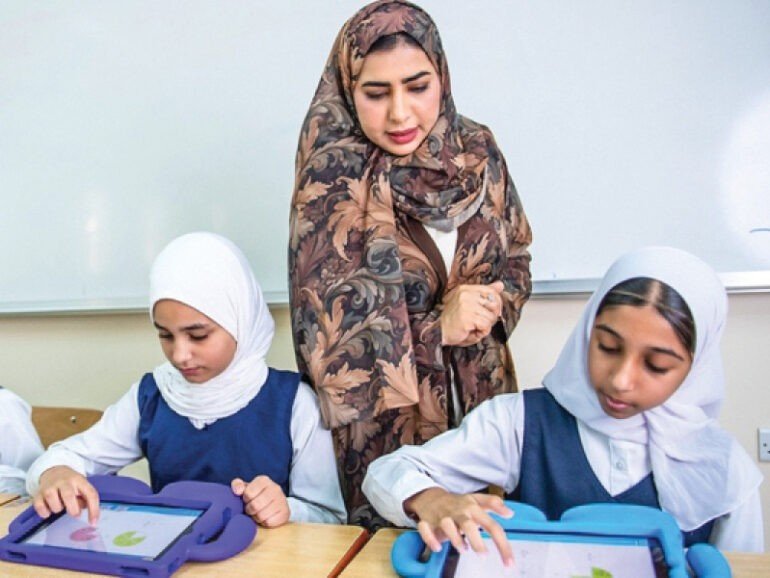Muscat – Oman’s Ministry of Education (MoE) has announced a comprehensive set of initiatives aimed at modernizing the education system, enhancing student safety, and accelerating digital transformation. The measures, unveiled by Dr. Ali bin Humaid al Jahouri, Advisor to the Minister of Education and the ministry’s spokesperson, reflect a nationwide commitment to building a safe, inclusive, and technology-driven learning environment.
Student Safety First
For the first time, the ministry has appointed 400 female supervisors to accompany students with disabilities on school buses, ensuring safer commutes and improved care. To support growing demand, 800 new school buses have been added to the fleet, complementing more than 20,000 buses already in service. Annual spending on student transportation has now crossed RO99 million.
Investment in Infrastructure
The MoE is also expanding investment across essential areas of school operations. Funding allocations include RO9 million for printing schoolbooks, RO14 million for cleaning contracts, and RO6 million for new classroom furniture. To address overcrowding, the ministry has appointed 3,444 new teachers across disciplines and launched school expansion projects. Twenty new schools are expected to open by the 2026/27 academic year.
Driving Digital Transformation
A key priority is equipping schools with advanced digital learning tools. The ministry has signed contracts with specialist firms to boost Internet bandwidth, while satellite Internet has been introduced in 50 remote schools. In the first phase of a three-part program, 5,000 interactive screens have been installed, with plans to cover every classroom nationwide.
The upcoming semester will also see the rollout of a nationwide e-learning system, featuring interactive digital textbooks. Additional initiatives include virtual science labs, a digital atlas, a new student data management system, and an education evaluation platform. These digital projects are supported by a “community participation” model to encourage shared responsibility in shaping the future of education.
“These steps are part of a comprehensive vision to build a safe, smart and inclusive education system,” Dr. Jahouri said, emphasizing the ministry’s dual focus on quality learning and student well-being.















